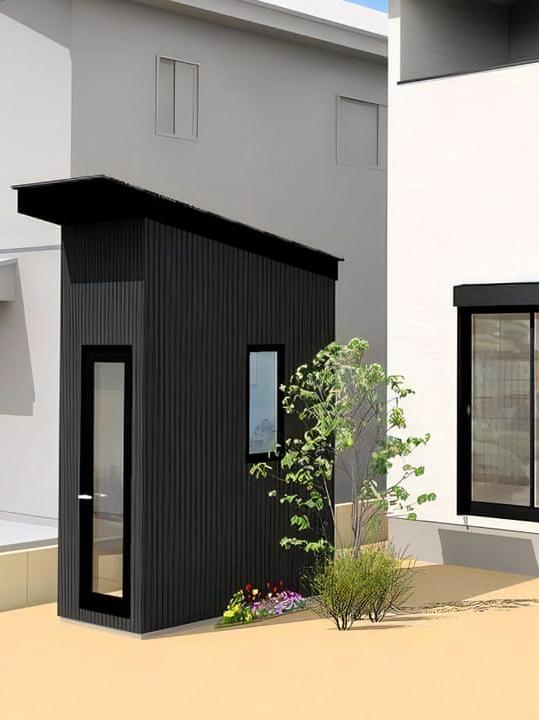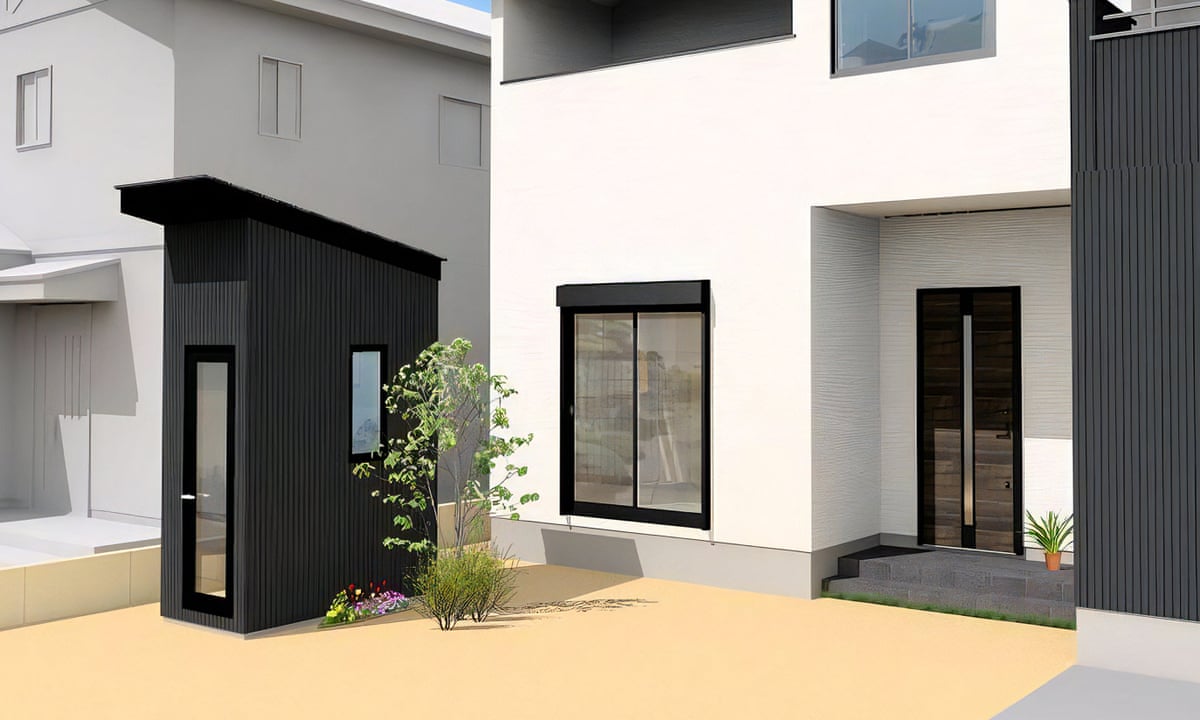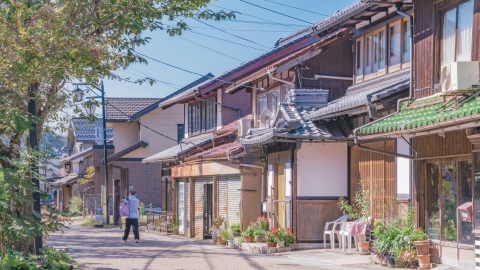Hanare Zenzen(HANARE 禅zen)This is a model of a separate office space measuring 91 cm wide and 1.8 m long, equipped with electrical outlets, a desk in the form of a platform, and a few other essential items. It will be built right next to your main house and will only take about two days to complete, provided there are no weather obstacles.
"Hanare" in Japanese means "separation," while "Zenzen" is a combination of both Chinese characters from Zen Buddhism and the Latin alphabet, a Japanese wordplay that simultaneously means "complete" and refers to the serenity and tranquility of Zen Buddhism.
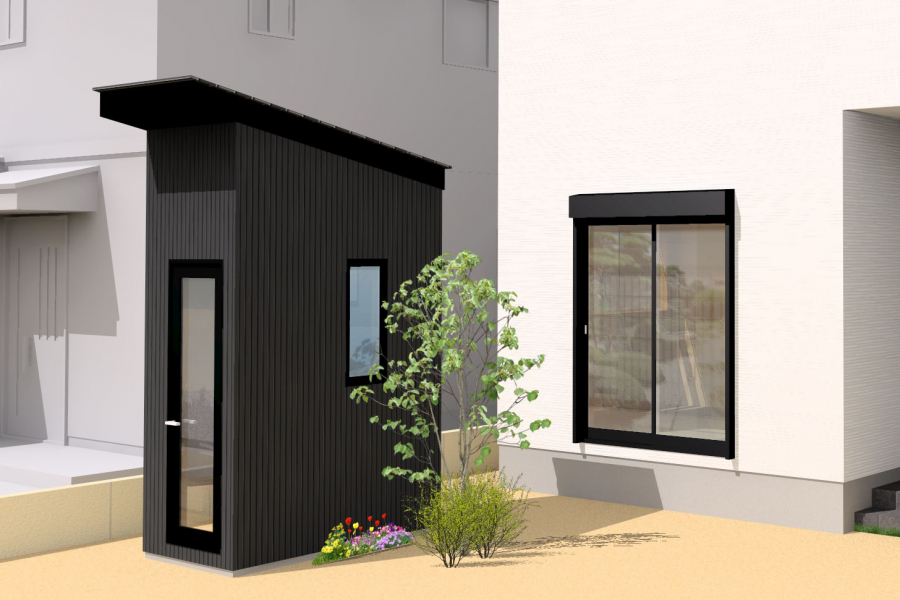
Hanare Zenzen is designed for people who are struggling to find a peaceful space to work from home without disrupting their family life.
A representative from KI Star Real Estate, a renowned design company in Japan and the entity behind this model, stated: “We originally created Hanare as a storage space. Given the current pandemic situation, the idea was conceived to develop Hanare Zenzen into a suitable workspace.”
"The use of the word 'Zen' in the name reflects minimalism in every aspect of the house, from reducing the size to minimizing features to only those that are truly necessary."
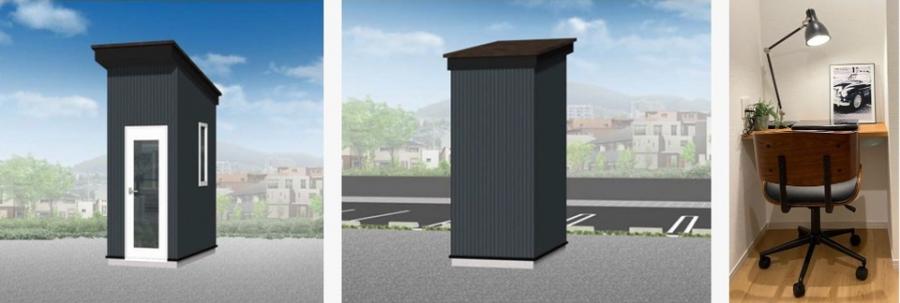
Hanare Zen costs 547,800 yen and is available in Tokyo and surrounding prefectures.
For those with a decent budget, these detached houses are a worthwhile option because they feature high-end flooring and wallpaper, and offer similar insulation performance to a regular house thanks to the use of double-glazed glass, which helps reduce energy costs. They are also designed to accommodate air conditioning if needed.
The company's official website also introduces Hanare Zenzen: "If you don't need to work remotely, you can use it as a warehouse or storage space; when your children are older, this house will be useful for studying and preparing for entrance exams."
Hanare Zenzen is said to be a smaller and simpler version of Hanare Study Version.(Hanare's office)- a separate, isolated structure launched last May, and this Hanare Study Version design itself is a smaller version of the Hanare released in November 2020.
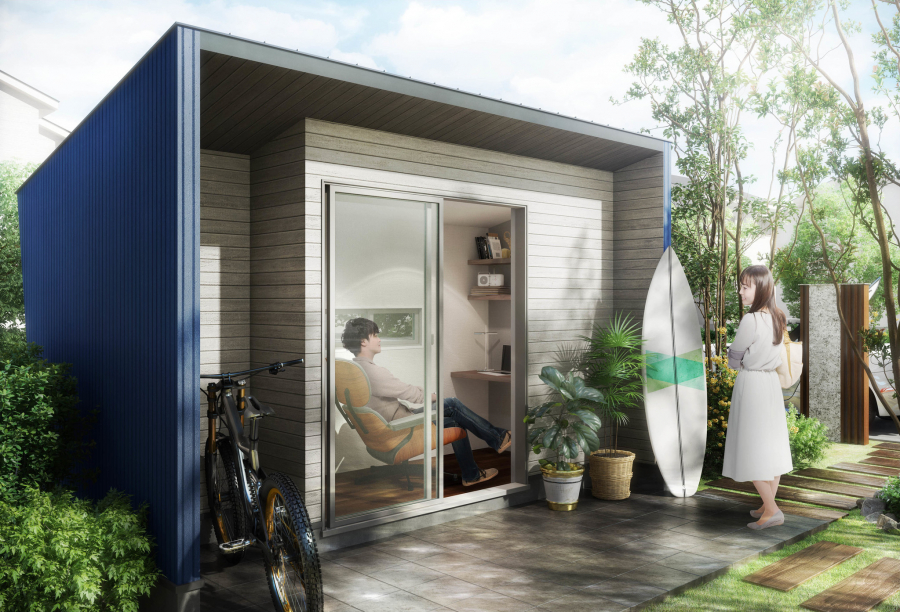
The Hanare Study Version is also designed for remote work, with a home-like space including a desk, an interior window, and sliding glass doors.
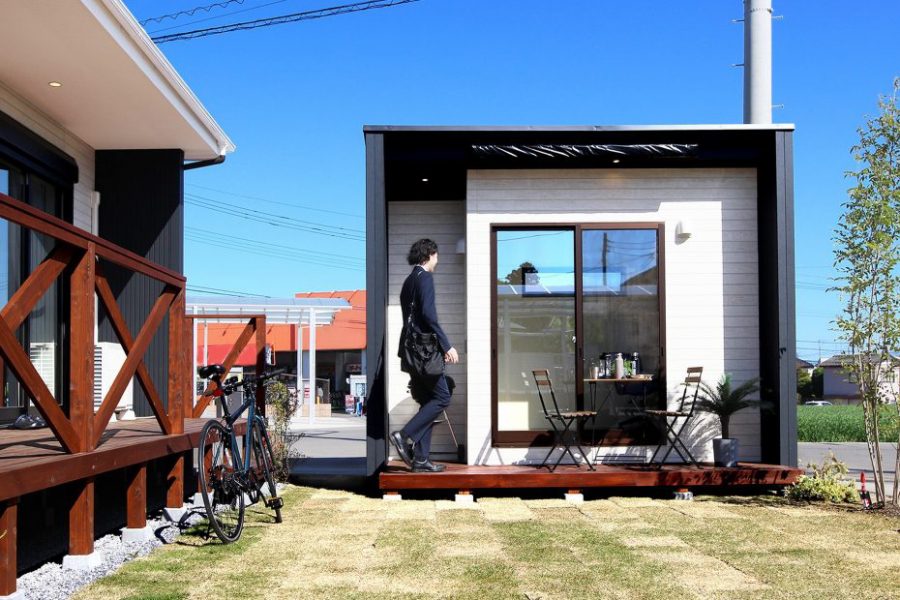
Hanare Study Version viewed from the outside.
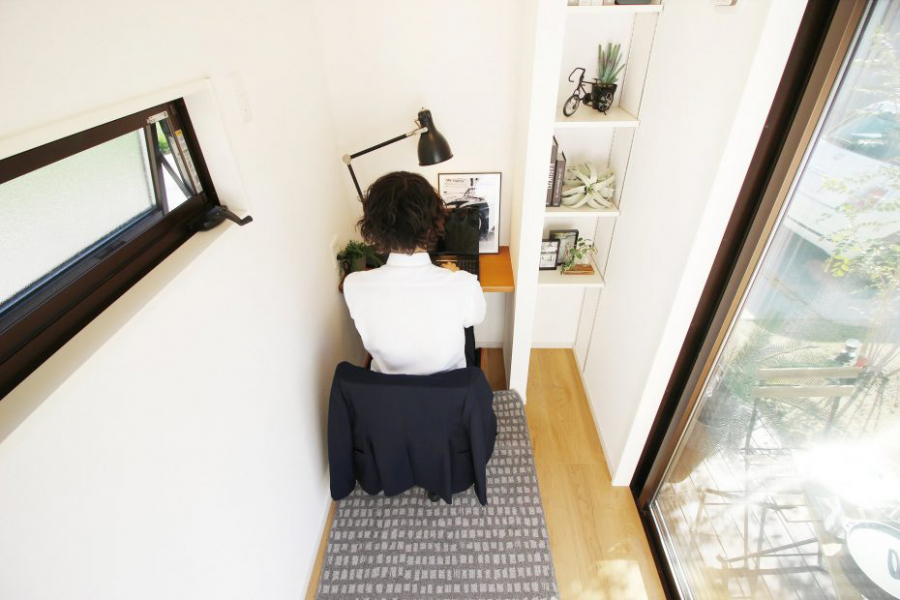
The interior space of Hanare Study Version.
For some people living in Tokyo apartments who simply cannot afford a Hanare Zenzen, they choose to work in their personal cars to find a peaceful and quiet space to concentrate on their work. This need has led to a range of accessories to support working in the car, including steering wheel-mounted laptop holders, folding tables, mini fans, portable batteries, and window shields to block out external events that could distract them from their work.
In Kawasaki, a region south of Tokyo, the Tokyu railway company has also renovated old train cars to repurpose them into remote workspaces, renting them out for 200 yen per hour at their Train & Bus Museum. The company has converted some ticket booths at stations into co-working spaces, available for rent starting in July. Reportedly, the company's customer numbers and train ticket sales revenue have decreased significantly due to the pandemic.
According to a survey by the Mainichi Shimbun earlier this year, even if the Covid-19 pandemic is brought under control, 90% of Japanese corporations still implement remote work and expect to continue this policy.
Although Japan did not implement a complete lockdown, the government urged people to work from home as much as possible to avoid overcrowding on public transport and reduce the risk of infection in the workplace.

 VI
VI EN
EN



